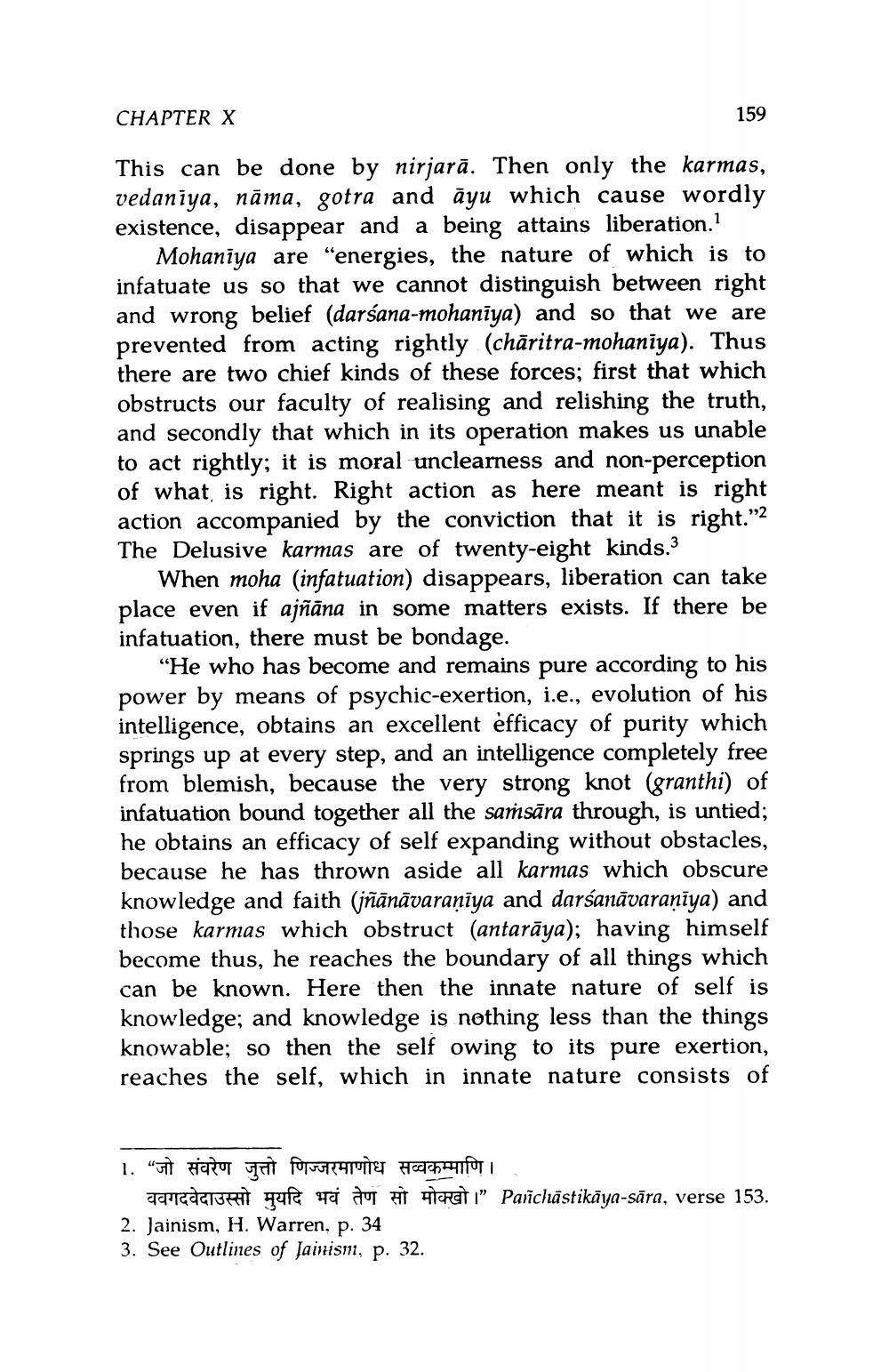________________
CHAPTER X
159
This can be done by nirjarā. Then only the karmas, vedaniya, nāma, gotra and āyu which cause wordly existence, disappear and a being attains liberation.
Mohaniya are “energies, the nature of which is to infatuate us so that we cannot distinguish between right and wrong belief (darśana-mohanīya) and so that we are prevented from acting rightly (chāritra-mohaniya). Thus there are two chief kinds of these forces; first that which obstructs our faculty of realising and relishing the truth, and secondly that which in its operation makes us unable to act rightly; it is moral unclearness and non-perception of what is right. Right action as here meant is right action accompanied by the conviction that it is right.”2 The Delusive karmas are of twenty-eight kinds. 3
When moha (infatuation) disappears, liberation can take place even if ajñāna in some matters exists. If there be infatuation, there must be bondage.
“He who has become and remains pure according to his power by means of psychic-exertion, i.e., evolution of his intelligence, obtains an excellent efficacy of purity which springs up at every step, and an intelligence completely free from blemish, because the very strong knot (granthi) of infatuation bound together all the saṁsāra through, is untied; he obtains an efficacy of self expanding without obstacles, because he has thrown aside all karmas which obscure knowledge and faith (jñānāvaraṇīya and darśanāvaraṇīya) and those karmas which obstruct (antarāya); having himself become thus, he reaches the boundary of all things which can be known. Here then the innate nature of self is knowledge; and knowledge is nothing less than the things knowable; so then the self owing to its pure exertion, reaches the self, which in innate nature consists of
1. " HORTO IT for
SATTTET Hecho 1 Tauracionit que to do that.” Parīсhāstikāya-sāra, verse 153. 2. Jainism, H. Warren, p. 34 3. See Outlines of Jainism, p. 32.




